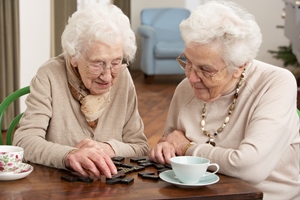Elderly see blood pressure rise as temperatures drop
 Elderly people are at an increased risk of strokes and heart attacks as a result of low temperatures in the home, says Franco Cappuccio tonight on BBC Inside Out.
Elderly people are at an increased risk of strokes and heart attacks as a result of low temperatures in the home, says Franco Cappuccio tonight on BBC Inside Out.
Professor Cappuccio, of Warwick Medical School and University Hospitals Coventry & Warwickshire NHS Trust, will appear on BBC Inside Out to outline how cold temperatures can lead to increased blood pressure in elderly people.
With falling temperatures making the headlines both home and abroad, there has been increased discussion about how the vulnerable members of society can suffer from respiratory illnesses. Tonight’s show will highlight the less well-known cardiovascular risks.
The danger posed by low temperatures is twofold; it leads to higher blood pressure and consequently an increased risk of heart attacks, and amplifies the fluctuation in blood pressure throughout the day – a trigger for strokes.
Research published in the 2009 Three Cities Study confirmed the relationship between temperature and blood pressure, and this is more pronounced for those above 80 years old.
Two volunteers for the programme, Reg and Sheila, were monitored for blood pressure changes over 24 hours and both allowed their home temperature to drop to 15°C overnight. The programme looks at their results and reactions.
Professor Cappuccio says, “Of course, from a practical point of view we can advise people to wrap up warm and put an extra blanket on the bed a night. But what we see as the fundamental problem is that many people simply cannot afford to keep their central heating on overnight – the rising cost of energy means that our elderly friends and relatives – those more vulnerable to strokes and heart attacks - are put at an even higher risk.”
Inside Out will be aired on BBC West Midlands at 7.30pm on Monday 20 January.
